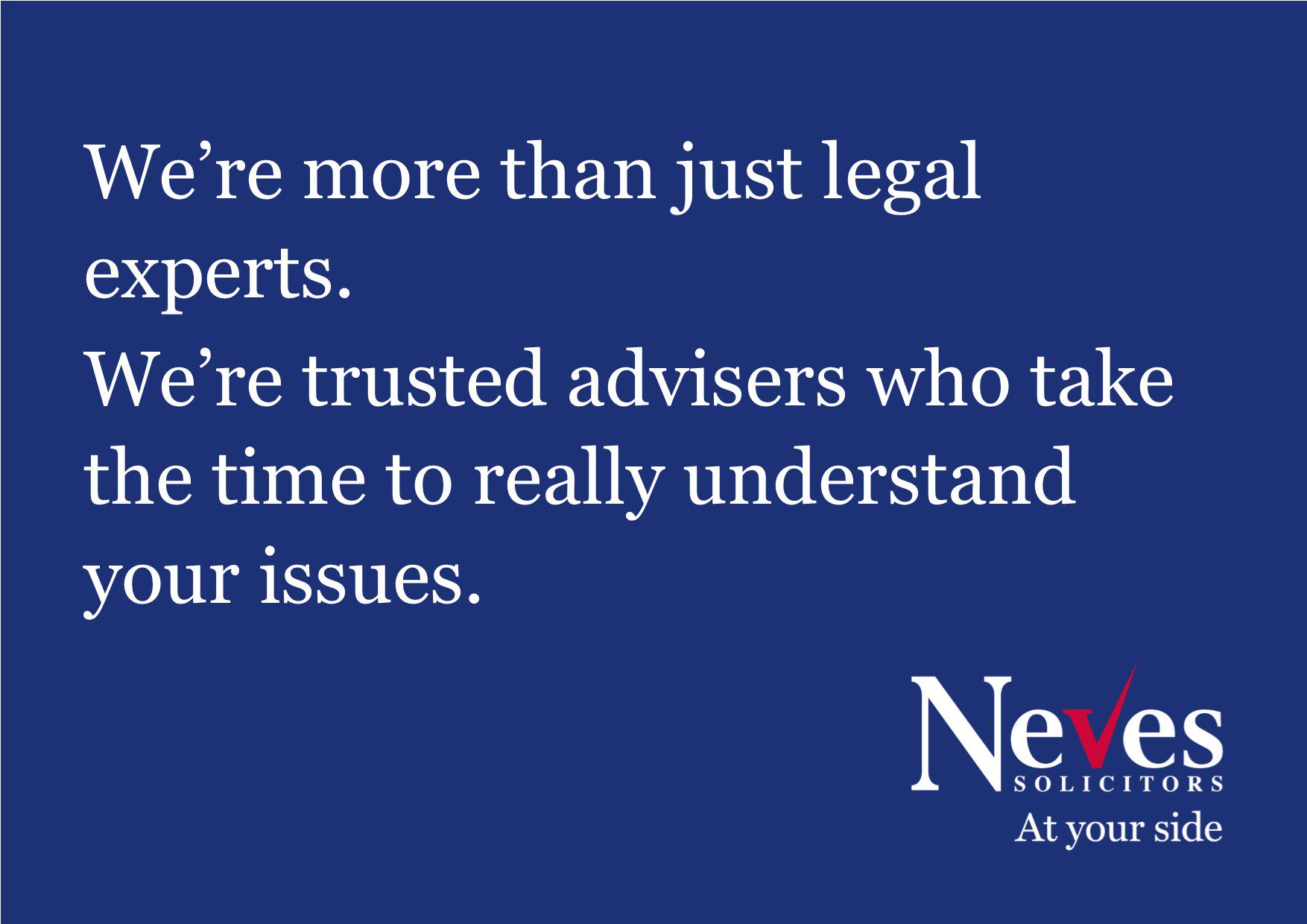

What does the lifting of Covid restrictions mean for employers?
Blogs
The legal requirement to self-isolate following positive test for COVID-19 ended on 24th February 2022. Instead, until 1st April 2022, those testing positive will be advised to stay at home, after which anyone with symptoms is being asked to ‘exercise personal responsibility’.
So, what does this mean for employers? Will employees be made to go into work even if they have COVID-19?
Senior Associate and Head of Employment & Commercial Disputes at Neves Solicitors, Fiona Hewitt, addresses these questions:
The change in the laws relating to COVID-19 has not changed the legal requirement for employers to provide a safe place to work. Employees cannot insist that everyone returns to the workplace unless they can be sure that it is safe to do so.
Employers should have particular regard for those with underlying health conditions and those who have or may have a disability under the Equality Act 2010- remembering that such conditions may not be immediately visible. It is advisable to carry out a risk assessment of the workplace to identify and reduce any risk of infection and transmission of the virus. Employers should also carefully consider requests to work from home. In the case of workers with a disability, this is likely to be viewed as a reasonable adjustment, particularly where they have successfully worked away from the usual workplace for nearly 2 years. An employer implementing a blanket requirement for all workers to return to the workplace could well face claims of discrimination and/or constructive dismissal.
Employers will also need to make decisions regarding sick pay. Currently, Statutory Sick Pay (SSP) for absence from work due to COVID-19 is payable from day 1 of the absence (and has been throughout the pandemic). This will continue for another month when the SSP rules in place prior to the pandemic will return so that SSP will be payable from day 4 of an absence due to illness. The SSP Rebate Scheme for small employers will also be removed, meaning that all employers will again have to pay their entire SSP bill.
Employers will need to look closely at their workforce, their H&S policies and their risk assessments. The (re) introduction of safety measures such as face coverings, hand sanitisers, washing facilities and social distancing may need to be considered but above all, open and honest communication with workers will help to identify risks and allay fears.
Aside from the risk of litigation, providing a flexible, healthy and happy workplace is likely to attract and retain the best talent, helping businesses to move forward after a difficult two years.
The content of this briefing is a summary of the changes to laws and regulations that came into force on 24th February 2022. It is not, nor is it intended to be exhaustive, nor does it contain advice. Specialist advice should be sought in relation to any queries.
Fiona can provide the support and guidance you need to manage your personnel in the best way possible and advise on you how to avoid the pitfalls that can have costly and time-consuming consequences.
Call Neves Solicitors on 0330 0945 500, email fiona.hewitt@nevesllp.co.uk or visit our website www.nevesllp.co.uk









